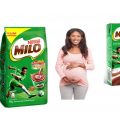Good nutrition is an important component of a healthy lifestyle and a healthy baby. The best time to review your nutritional status to make appropriate changes is prior to conception. A very important time of fetal development is during the first several weeks of pregnancy when many women may not even realize they are pregnant. The nutritional changes that should occur prior to pregnancy must be individualized based on your medical status, weight, and eating habits.
Pregnancy is one time in life when weight gain is not only desirable but also encouraged. Recommended weight gain may depend on a number of factors, including pre-pregnancy weight. You might also expect to gain more if you are carrying multiple babies. Your healthcare provider can help you determine what a reasonable weight gain is for you. The American Academy of Family Physicians is a good resource for even more information.
During pregnancy, it’s especially important to eat well and have all the nutrition to maintain a healthy lifestyle for both mother and child. However, the immune system is weaker during pregnancy. Some foods should be avoided or only consumed in little doses. Take time to read up and get informed.
What is Sugar cane?
Sugarcane or sugar cane refers to several species and hybrids of tall perennial grass in the genus Saccharum, tribe Andropogoneae, that are used for sugar production. Sugarcane juice is a sweet, syrupy liquid that’s pressed from peeled sugar cane. It’s often sold by street vendors who mix it with lime or other juices and serve it over ice for a tasty drink.
It’s processed to make cane sugar, brown sugar, molasses, and jaggery. Sugarcane can also be used to make rum, and in Brazil, it’s fermented and used to make a liquor called cachaça. Sugarcane juice isn’t pure sugar. It comprises about 70–75% water, about 10-15% fiber, and 13–15% sugar in the form of sucrose — the same as table sugar.
In its unprocessed form, it’s also a good source of phenolic and flavonoid antioxidants. These antioxidants are the primary reason that some people claim it has health benefits. Because it’s not processed like most sugary drinks, sugarcane juice retains its vitamins and minerals.
As it also contains electrolytes, such as potassium, it has been studied for its hydrating effects. In a study of 15 cycling athletes, sugarcane juice was shown to be as effective as a sports drink in improving exercise performance and rehydration. Yet, it raised athletes’ blood sugar levels during exercise. Its benefits were largely linked to its carb content and its ability to restore energy reserves in your muscles after a workout.
Is Sugarcane Good For a Pregnant Woman?
Web MD states that; although sugar is often associated with weight gain, consuming some sugarcane can boost your metabolism and moderate weight gain in pregnant women. Studies have found that consuming sugarcane juice with ginger can help decrease the occurrence of morning sickness and strengthen the immune system of pregnant women as well.
In addition, Sugarcane juice has been found to be a great addition to a pregnant woman’s diet. It facilitates quicker conception and safer pregnancy. Sugarcane juice also contains trace amounts of folic acid or vitamin B9 which is known to protect from neural birth defects like Spina bifida. Also, research has discovered that sugarcane juice minimizes ovulating problems in women, thereby increasing the chances of conception.
However, a new study published in the American Journal of Preventive Medicine, has found that sugar and soda consumption may affect a child’s memory and learning. But it’s not all bad news: Researchers also concluded that eating more fruit (both you and your LO) could bolster kids’ cognitive abilities.
This research only serves to reiterate that indulgence, especially in sugary snacks, is usually best done in moderation. It also emphasizes how important it is to follow a healthy diet when you have a baby on the way.
Besides keeping sugarcane to a minimum, here are a few more rules of thumb that may come in handy when trying to eat healthy during pregnancy:
- Eat a variety of foods: The foundation for a healthy pregnancy diet is similar to your healthy pre-pregnancy diet: a balanced mix of lean protein and calcium, whole grains, a rainbow of fruits and vegetables, and healthy fats (with usually a little more calories, and nutrients to nourish baby).
- Satisfy sugary cravings with a healthy alternative. For example, try reaching for fresh fruit (such as mangoes, which are chock-full of vitamins A and C) or fruit-infused water instead of a candy bar or soda.
And if you have a baby or toddler running around, here are a few sugar-related tips to keep in mind:
- Skip sugary drinks. As mentioned above, experts recommend that kids under 1 shouldn’t be given any fruit juice (the same goes for soda). If your tot is between the ages of 1 and 3, the AAP recommends that you keep her fruit juice consumption under 4 ounces per day; if he’s between 3 and 5, keep it to between 4 and 6 ounces per day. And if you are serving up any juice, look for “100 percent fruit juice” on the label — juice that’s not 100 percent fruit will often be labeled something like “fruit cocktail” and is almost always laden with tons of added sugar and sweeteners.
- Start with whole fruit. When you start baby on solids (between 4 and 6 months), try introducing nutrient-rich fruits — bananas, strawberries — that have been mashed up or pureed. Is your kid between the ages of 1 and 4 and already eating solids? Aim to serve up about a cup of fresh fruit per day.
- Offer juice in a cup — not a bottle. Instead of letting your LO toddle around with juice in a bottle or sippy cup, try to offer up juice as part of a meal or snack — even if the juice is diluted, carrying around a sippy cup or sleeping with a bottle can prolong your child’s exposure to the sugar — which is bad news for her little teeth. ALSO READ:Is It Safe To Drink Malt During Pregnancy?





